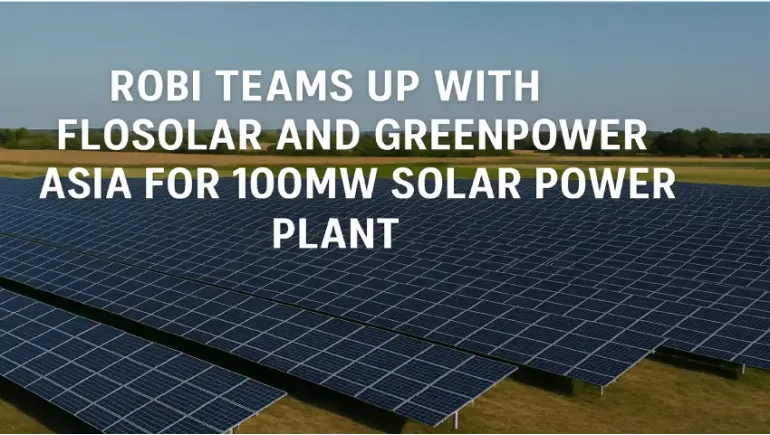
In a significant stride towards sustainable energy, Bangladeshi telecom giant Robi has partnered with FloSolar Solutions Ltd and GreenPower Asia to develop a 100-megawatt (MW) solar power plant. This collaboration aims to bolster Bangladesh's renewable energy capacity and support Robi's commitment to achieving net-zero emissions by 2050.
The partnership, formalized through a tripartite memorandum of understanding (MoU), involves the creation of a special purpose vehicle (SPV) tasked with the development, financing, and operation of the solar plant. Under this arrangement, Robi will procure electricity through a corporate power purchase agreement (CPPA), ensuring a reliable and sustainable energy supply for its operations .
The project's realization is facilitated by the government's recent draft policy permitting merchant power plants. This policy shift enables private entities to develop and sell electricity without the need for long-term government off-take agreements, thereby encouraging private sector participation in the renewable energy sector .
The solar power plant is expected to significantly reduce Robi's carbon footprint, aligning with the company's sustainability goals. Additionally, a joint assessment will explore the feasibility of deploying solar power across 16,000 of Robi's base transceiver stations (BTS), potentially transitioning a substantial portion of its network to renewable energy.
Robi's Acting CEO and CFO, M Riyaaz Rasheed, emphasized the importance of this initiative, stating, "Together with FloSolar and GreenPower Asia, we are setting a bold example in renewable energy, driving real impact toward climate resilience." This sentiment reflects the growing recognition of the telecom sector's role in advancing sustainable energy solutions.
This collaboration marks a pivotal moment in Bangladesh's journey towards a greener future. By leveraging private sector expertise and aligning with supportive government policies, the 100MW solar power plant stands as a testament to the country's commitment to sustainable development and energy security.



-112x63.27.webp)




-132x74.57.webp)



Comments
There are no comments for this Article.